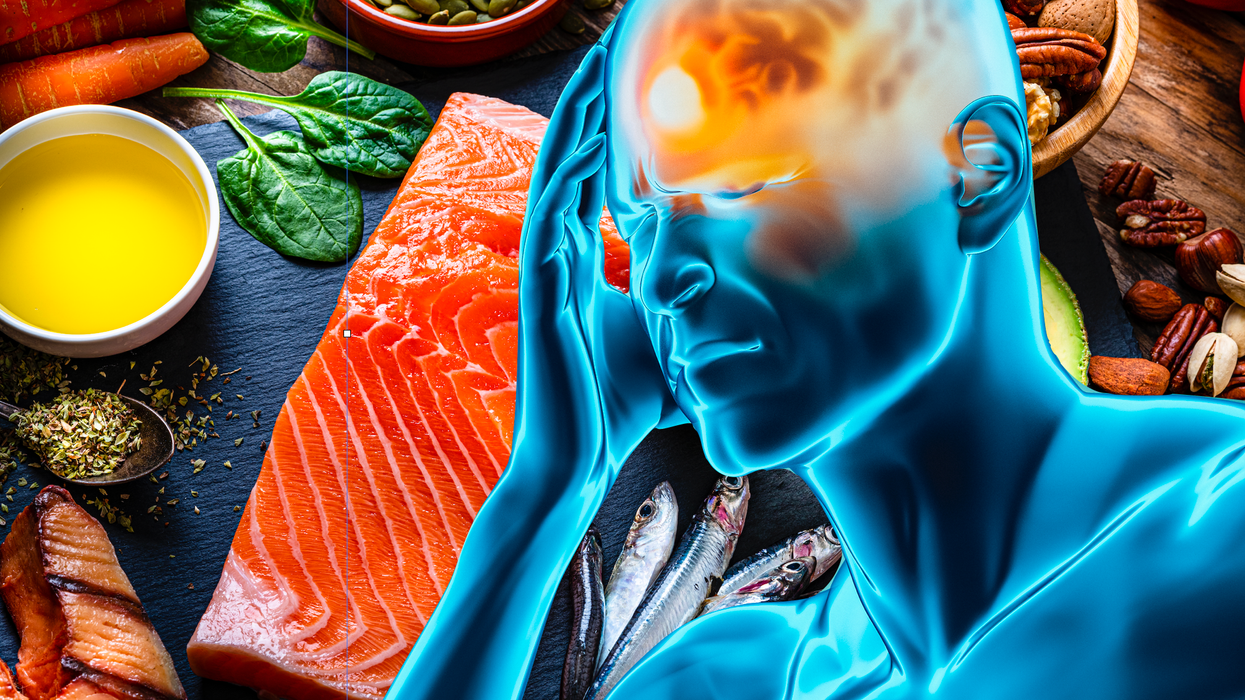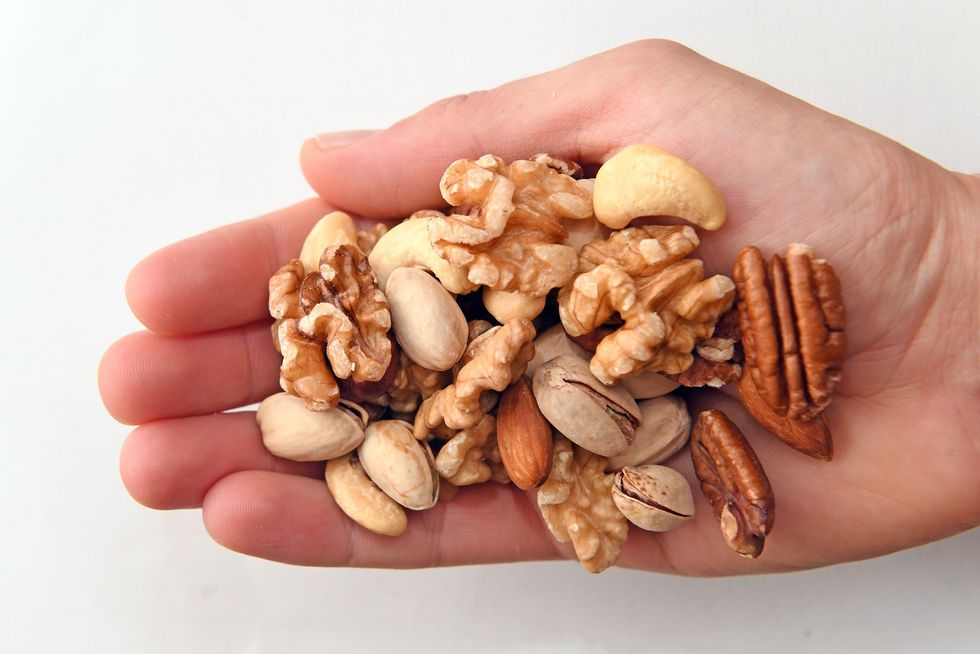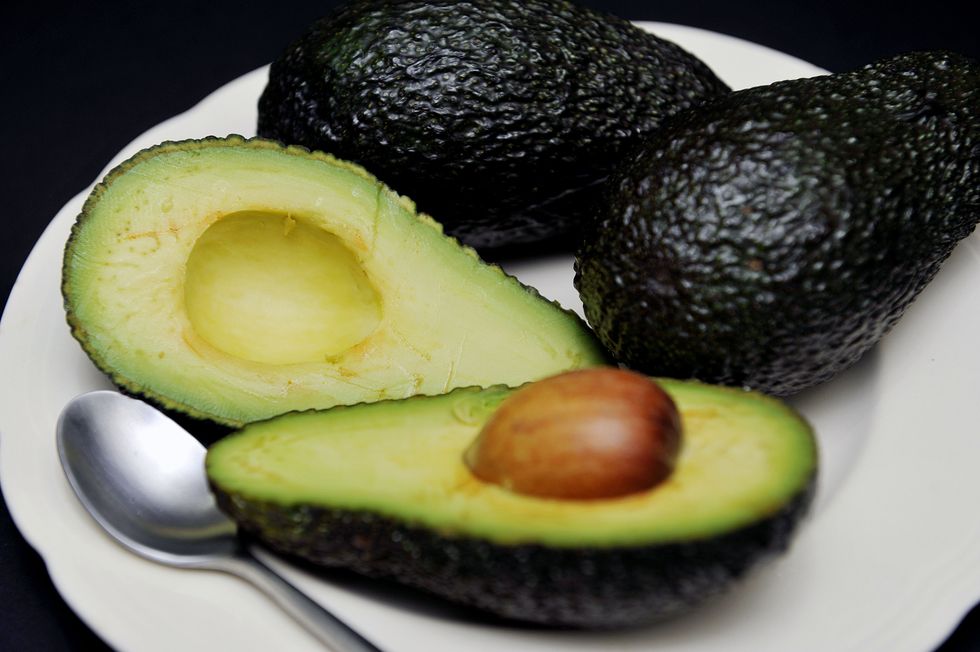The six foods that could boost memory in middle-age and reduce your risk of dementia

The Mediterranean diet has been shown to reduce the risk of dementia and memory loss in various studies
|Getty Images

The Mediterranean diet has shown promise in stopping brain decline dead in its tracks. But what are the best components of this dietary approach?
Don't Miss
Most Read
Latest
Every three seconds someone new develops dementia and the world is currently rigged with a ticking time bomb.
The latest data shows global dementia cases are set to triple, with 153 million living with brain decline by 2050.
Thanks to advancements in healthcare over the last century, many people are now living longer and healthier lives than ever before, and so the world population has a greater proportion of older people, particularly in low-and middle-income countries.
Disaster looms but it can be averted. An encouraging body of evidence suggests closely following the Mediterranean diet can reduce the risk of dementia and its hallmark symptom - memory loss.
A recent study of 1,644 participants found the MIND diet, which combines elements of the Mediterranean diet and the Dietary Approaches to Stop Hypertension (DASH) diet, even slows down the processes of ageing that can lead to dementia.
The diet emphasises plant-based foods (especially berries and leafy greens) and limited consumption of animal products and saturated fats. But which components of the Mediterranean diet and its offshoot are most conducive to staving off memory decline and dementia?
Nuts
Nuts contain fatty acids, vitamins, minerals and antioxidants which have essential roles in many aspects of brain health.
A 2017 study singled out walnuts, hazelnuts and almonds as a preventive agent against cognitive decline and neurodegenerative diseases such as Alzheimer’s.
Researchers attribute the brain-boosting potential of walnuts to its high concentration of DHA - a type of omega-3 fatty acid that helps maintain the fluidity and flexibility of neuronal membranes.
These fundamental working units of the brain are designed to transmit information to other cells, enabling the body to function.
DHA is "crucial for maintaining optimal brain function, including learning and memory processes", Amy Reichelt, Chief Innovation Officer at PurMinds Neuropharma told GB News in an exclusive interview.
Just go easy on portion sizes and avoid unhealthy additions like salt and sugar.

Nuts contain high concentrations of DHA - a building block of the brain that boosts cognitive function
| PA IMAGESSalmon
Salmon is also rich in omega-3 and DHA - the building block of the brain that boosts cognitive function.
There's no shortage of studies suggesting the oily fish boosts memory and reduces the risk of dementia.
A study of almost 2,200 middle-aged Americans published in the journal Neurology found those consuming the most amount of omega-3 from oily fish such as salmon had a larger hippocampus - the brain region responsible for memory.
Another study of heart and brain health reported that the consumption of oily fish was associated with a reduced risk of dementia in those who had the APOE4, the strongest risk factor gene for Alzheimer’s disease.
It is important to acknowledge that cause and effect has not been established so it cannot be asserted that eating salmon will reduce the risk of dementia.
Oily fish can help to prevent heart disease and other chronic diseases linked to brain decline so it's an essential component of a healthy, balanced diet.
You should eat at least two portions of oily fish a week, advises the NHS.
Avocados
Avocados have become the byword for bougie brunch spots but there's more to the millennial obsession than meets the eye.
As a source of healthy monounsaturated fats, avocados can contribute to improved blood flow and brain health. The superfood is also high in lutein, a dietary component associated with cognitive benefits.
A 2021 published in the journal Frontiers in Nutrition examined the effect of avocados on cognitive performance in older adults. Participants who consumed avocados had significantly better scores across all cognitive tests than those who did not eat avocados.
What's more, a 12-week study published in the International Journal of Psychophysiology found a diet including daily intake of avocados improved the ability to focus attention in obese and overweight adults.
As the study's researchers rightly point out, "previous work has shown that individuals with overweight and obesity are at higher risk for cognitive decline and dementia in older age", so the link between avocados and cognitive benefits in this at-risk group is worth exploring further.
LATEST DEVELOP,MENTS

Avocados can contribute to improved blood flow and brain health
| PAWholegrains
Wholegrains are rich in vitamin B and E, and other antioxidants. They also have a lot of fibre, which has been linked to better brain health.
As a source of complex carbohydrates that release glucose gradually, wholegrains provide a steady energy supply to the brain. This can help improve short and long-term memory and brain ageing.
A study of almost 3,000 people published in Psychiatry and Clinical Neurosciences linked the consumption of wholegrain foods with a lower risk of all-cause dementia and Alzheimer’s disease dementia.
Furthermore, a study published in Neurology found that Black people who ate the most wholegrains had lower levels of memory decline - equivalent to being 8.5 years younger - than those who ate small amounts of wholegrains.
Good examples include:
- Wholewheat, including spelt and durum wheat
- Oats
- Barley
- Rye
- Brown rice and wild rice
- Maize (corn)
- Millet
- Spelt
- Buckwheat
Berries
Berries contain a particularly high amount of flavonoids called anthocyanidins that are capable of crossing the blood brain barrier and localizing themselves in the hippocampus - an area of the brain known for memory and learning.
In contrast, investigational drugs and other alternative therapies often fail because they cannot cross the blood brain barrier or reach the hippocampus.
What's more, flavonoids are known to have antioxidant and anti-inflammatory characteristics which can benefit the brain.
A study of 16,010 women published in the Annals of Neurology found that greater ingestion of blueberries and strawberries correlated with slower rates of cognitive decline for up to 2.5 years.
The women who showed the most improvement consumed two or more servings of the berries each week.
The study was observational so a direct association could not be established but it is consistent with other findings.
Last year, researchers found that men and women who were given a daily serving of strawberries saw improvements in their verbal learning and memory test scores, implying better executive function.

Berries contain a particularly high amount of flavonoids that are known to benefit the brain
| GETTY IMAGESLeafy green vegetables
Leafy green vegetables are packed with brain-boosting nutrients, such as lutein, vitamin K and nitrate that are associated with cognitive health.
A study of 581 people published in Neurology found eating more than six servings of green leafy vegetables per week, or not eating fried foods, was associated with fewer amyloid plaques in the brain similar to being about four years younger.
These plaques form in the brains of people who have Alzheimer's and can lead to problems with brain function
Another study recently published in Neurology found that healthy seniors who had daily helpings of leafy green vegetables — such as spinach, kale and collard greens — had sharper memory and slower rates of cognitive decline.
Most of these studies were observational but evidence is accumulating that leafy greens can protect your brain well into old age.







